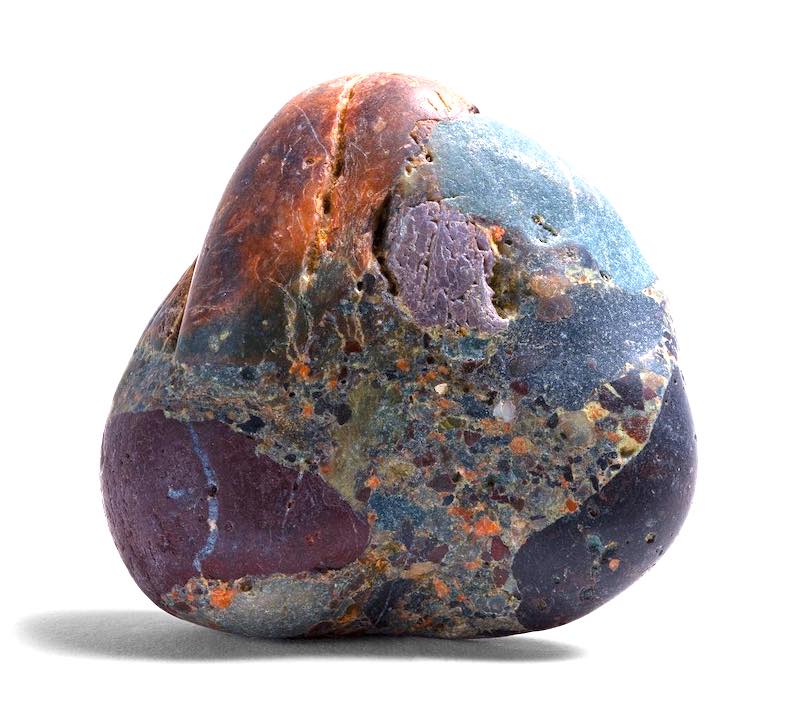
Photo by Tim Christensen
From Tom Dooley, Managing/Fiction
Were it printed and bound, this would be one of the thinnest issues in Eclectica's 27-plus years of existence, and that's okay. We're usually blessed with an abundance of content, but it has always been our philosophy to only publish whatever we felt compelled to share with the world, neither excluding something we loved to keep the page count manageable nor including something we didn't to fill up the issue. And of course, it follows the work included here did win us over. I hope you'll be similarly moved, entertained, and surprised.
In keeping with a minimalist approach, Peter Cherches scored a Spotlight runner-up award for his Bing AI-generated flash and accompanying essay. To clarify, only the flash was written by Bing; Peter authored the essay himself. Or at least we think he did...
Huntley Gibson Paton makes history with this issue by being the first author to be a Spotlight Runner-up three times! And this is only his fourth appearance, so he's batting a crazy percentage.
Speaking of crazy numbers, Thomas J. Hubschman continues to expand the body of work he's published in Eclectica, not only with his usual, brilliant Salon essay, but with a bonus essay on the conflict in Gaza and a short story—his 11th contribution in that category.
As a general rule, we don't publish pieces that have already appeared elsewhere on the Internet, but Meg Pokrass, one of the strongest purveyors of flash fiction writing today, earned an exception for her flash "A Female Cod Can Lay Up to Nine Million Eggs," which can be seen on Trampset as part of a larger work, which I urge readers to check out as well.
Shout out to Perry Genovesi, who rounds out our Fiction section and is the only newcomer to Eclectica in that category this go round.
Many thanks to Tim Christensen for providing this issue's artwork. Cue the dad puns: Yes, these images do rock. Thanks also to former contributor Margaret Bauer, who saw Tim's photos and thought I would like them. She was correct!
Speaking of rocking out, kudos to Richard Dragan, who recently published his story collection Invisible Bridges. Also to Chikodili Emelumadu for her "magical, feminist Nigerian boarding school novel" Dazzling. Props also to Eli Cranor. The New York Times and The Guardian (UK) named his second novel Ozark Dogs one of their "Best Crime Novels" of 2023. This month will mark the release of Laird Barron's translation of Gorinkai Antonio Rivas' The Man With No Name. We wish him the best with it. And Chika Unigwe had a pretty great December, having been made a Knight of the Order of the Crown of Belgium due to her artistic and literary merits and services to that nation. Not too shabby!
Finally, I want to thank Stuart Ross for his tenure as Eclectica's Review Editor. He is moving on to greener pastures, but he's left a mark with his whip-smart reviews, and I'm hoping he'll continue to send us some of his words now and then. Best wishes to you, Stuart!
From Evan Martin Richards, Poetry
Happy New Year, and welcome to the January/February 2024 issue! I hope those of you currently feeling the brunt of winter keep safe and warm—I've found it comforting to remind myself that we've passed the solstice and our days are getting longer.
In this issue's Poetry section, Spotlight Author Maya Stahler's "RATSTAR" brings us a wealth of detail and image, including a young child who likes to all everything a rat—I'll let the rest speak for themselves. Romance (and bumblebees) are in the air in Laurel Benjamin's "Anti-Love Poem." Emma Buckley's "Front Door, at the Old Place" continues the thread with a reflective piece that presents memory as a form of time travel. Fitting for the year and season, Nathaniel Calhoun provides a visceral rendering of chronic illness in "autoimmune." For a reprieve from the cold, Toni Artuso conjures a wine country heatwave in "After My Friends' Wedding." Finally, Tina Denetclaw's "Companions" pulls back to a glacial pace as we witness a continent through past, present, and future.
The Word Poem Special Feature comprises poems all written with the required words better, doubt, mode, and wrong. This issue's pieces boast a particularly wide variety of form and content. Kristin Sirianni's "Walking to the Bus Stop" finds the overlap of gospel and art. Melanie Hyo-In Han looks to nature for structural inspiration in "Root," and D A Angelo, too, looks to the natural world for guidance in "On the Need for a Pinch of Optimism." Susanna Skelton praises the black sheep of our dentition in "Ode to Wisdom Teeth." Richard L. Matta pens a karmic tale of vandalism on sacred ground in "The Watchman." Holly Payne-Strange's "Holly's Homemade Honey Cakes" comes in the form of a recipe better suited to yield perseverance than pastry, and Ellen Sander ruminates on phonetic breakdown in the aptly titled "Langwedge." If you'd like to participate in next issue's Word Poem challenge, the assigned words are run, ever, rise, and green—I look forward to seeing where these words take your poetry!
From Marko Fong, Nonfiction
We're pleased to have three very different articles this issue. At a time when discussion about artificial intelligence in general and chatgpt in particular has been highly polarized, Peter Cherches's "Not a Hemingway Story" and its accompanying essay takes a more nuanced look at where the technology really stands and suggests the possibility of a middle ground. Gina Ella takes us on a birdwatching trip to Cambodia during which she can't ignore the country's tragic history or its natural beauty. D.W. White argues that the use of first person narration in D.W. Nath's 2010 novel, La Rochelle, compares favorably with the Fitzgerald classic, The Great Gatsby. The result is an interesting discussion of the subtleties of narrative technique.